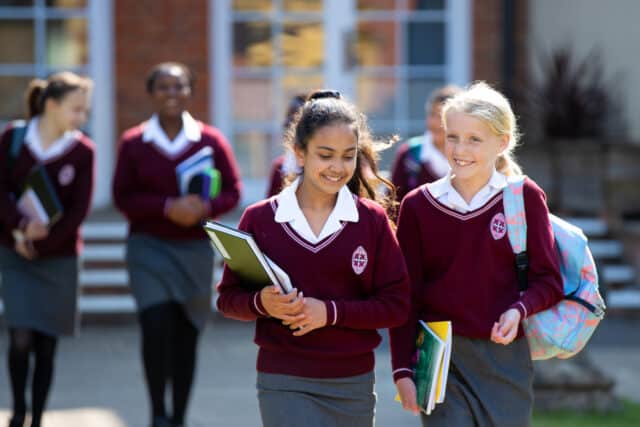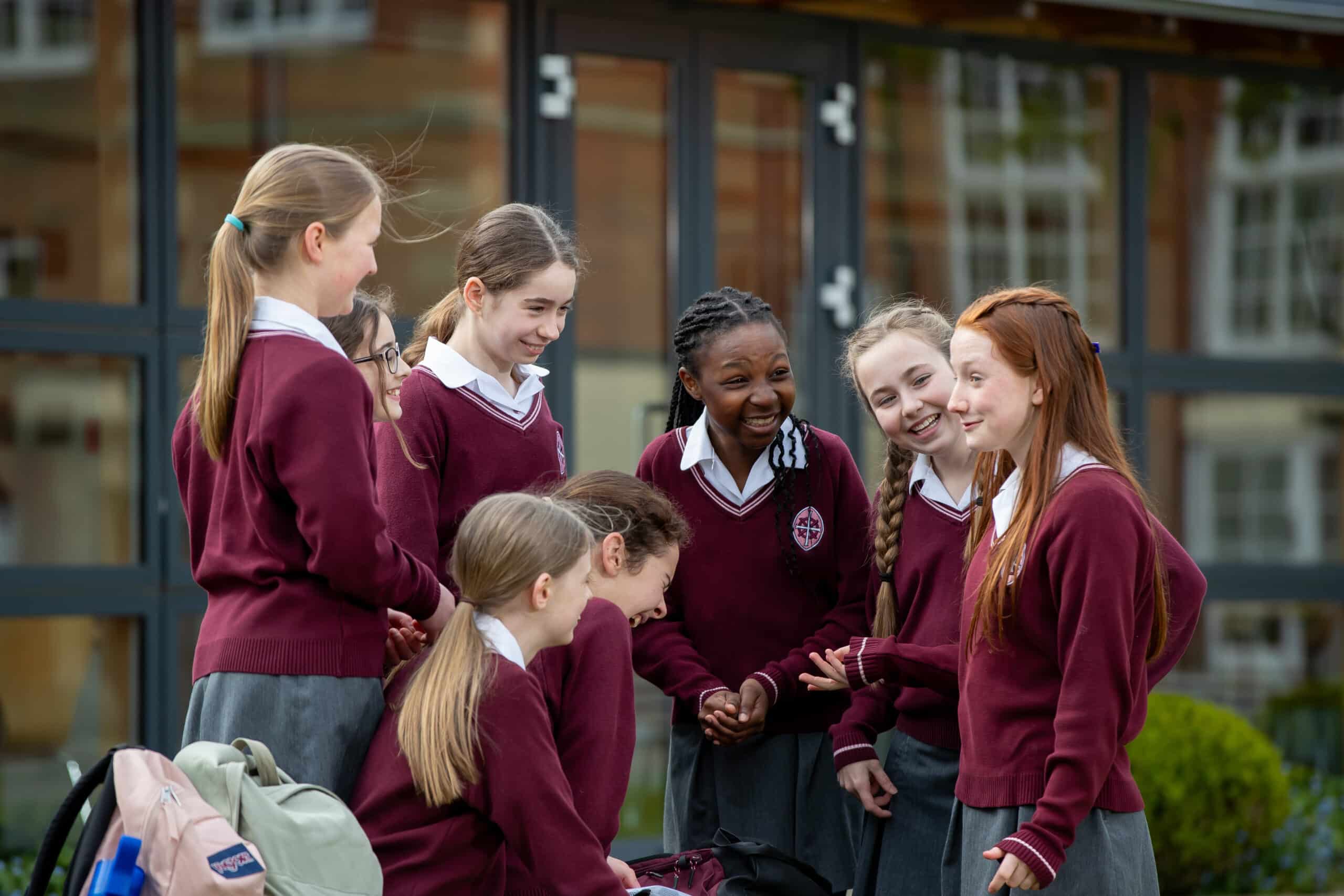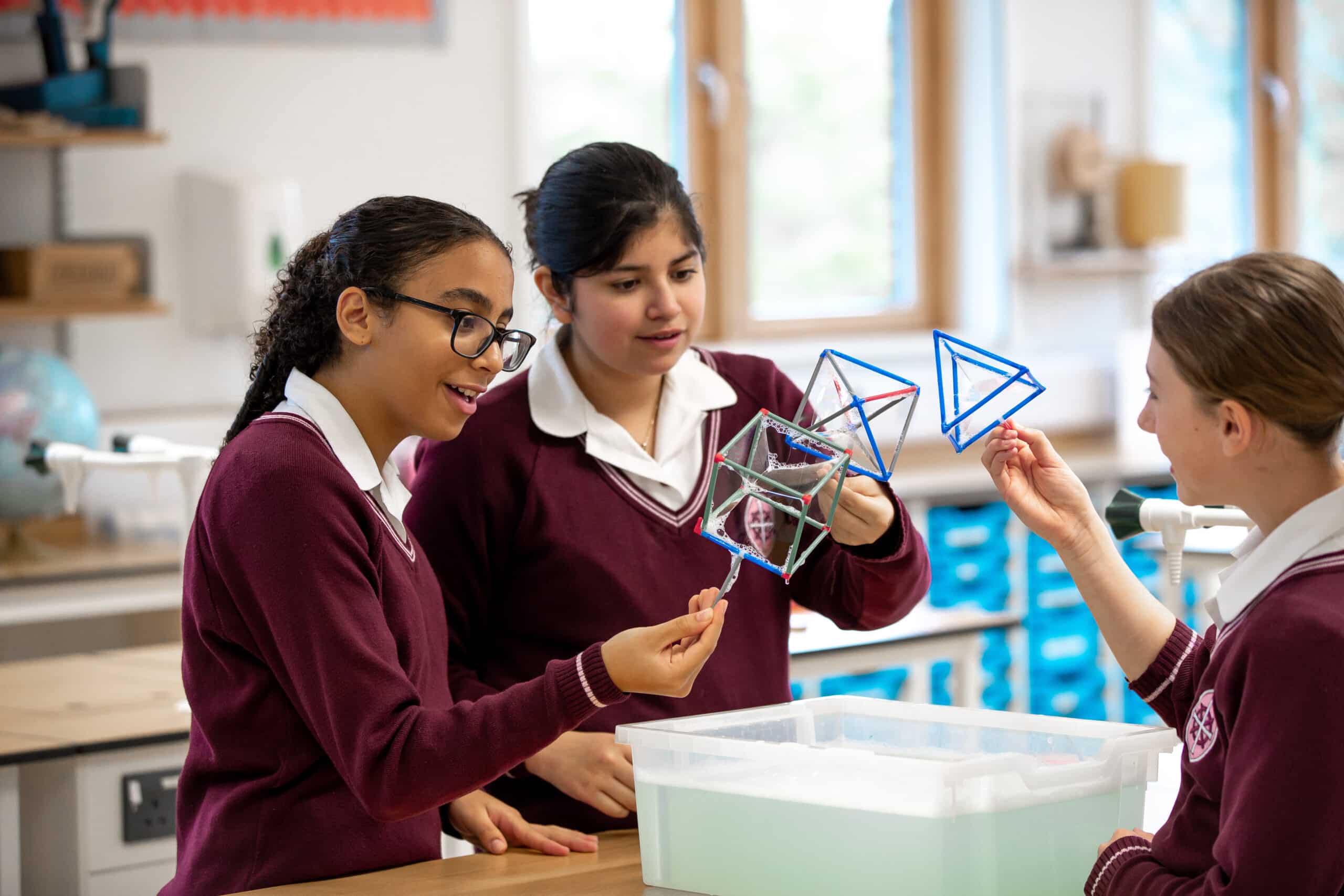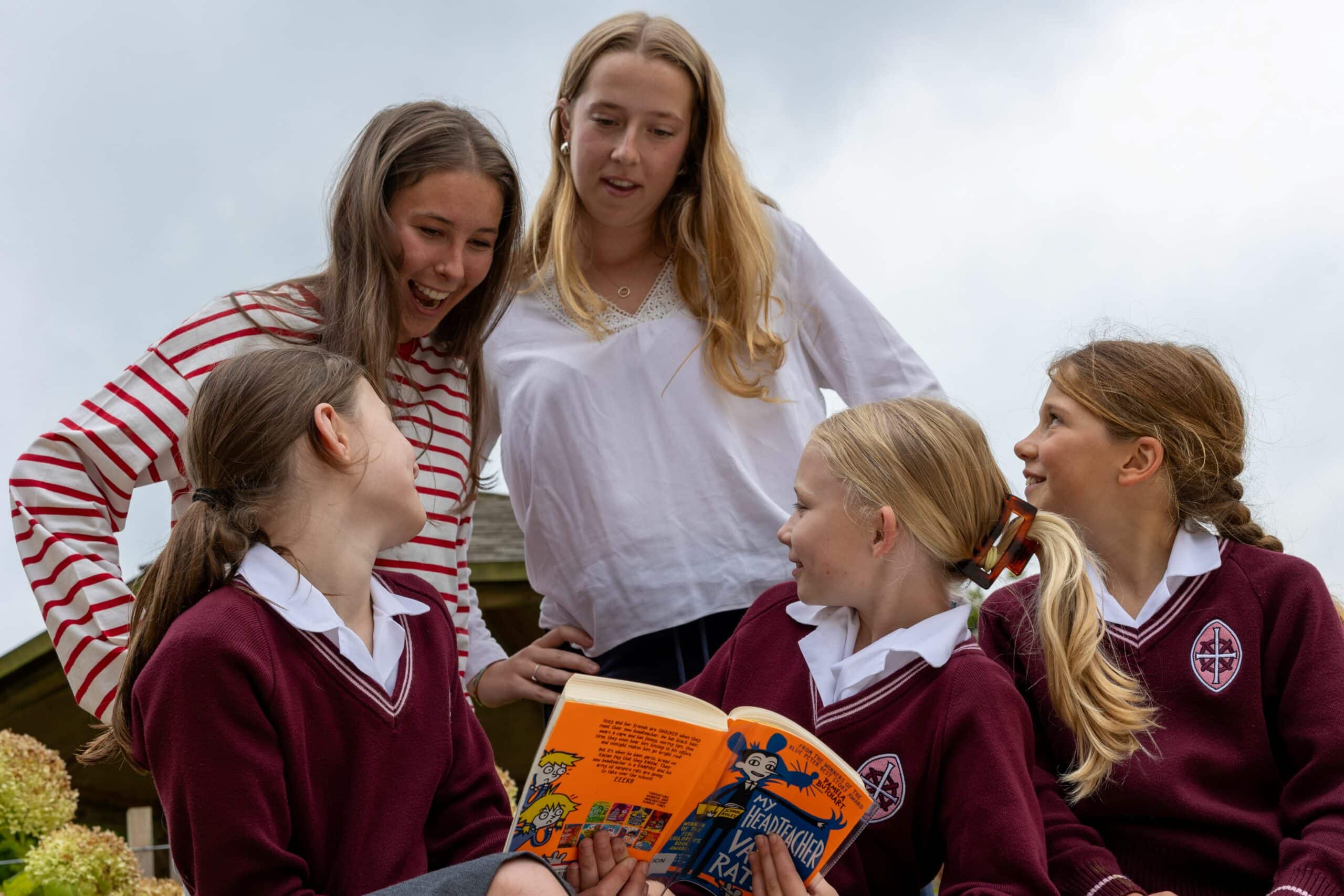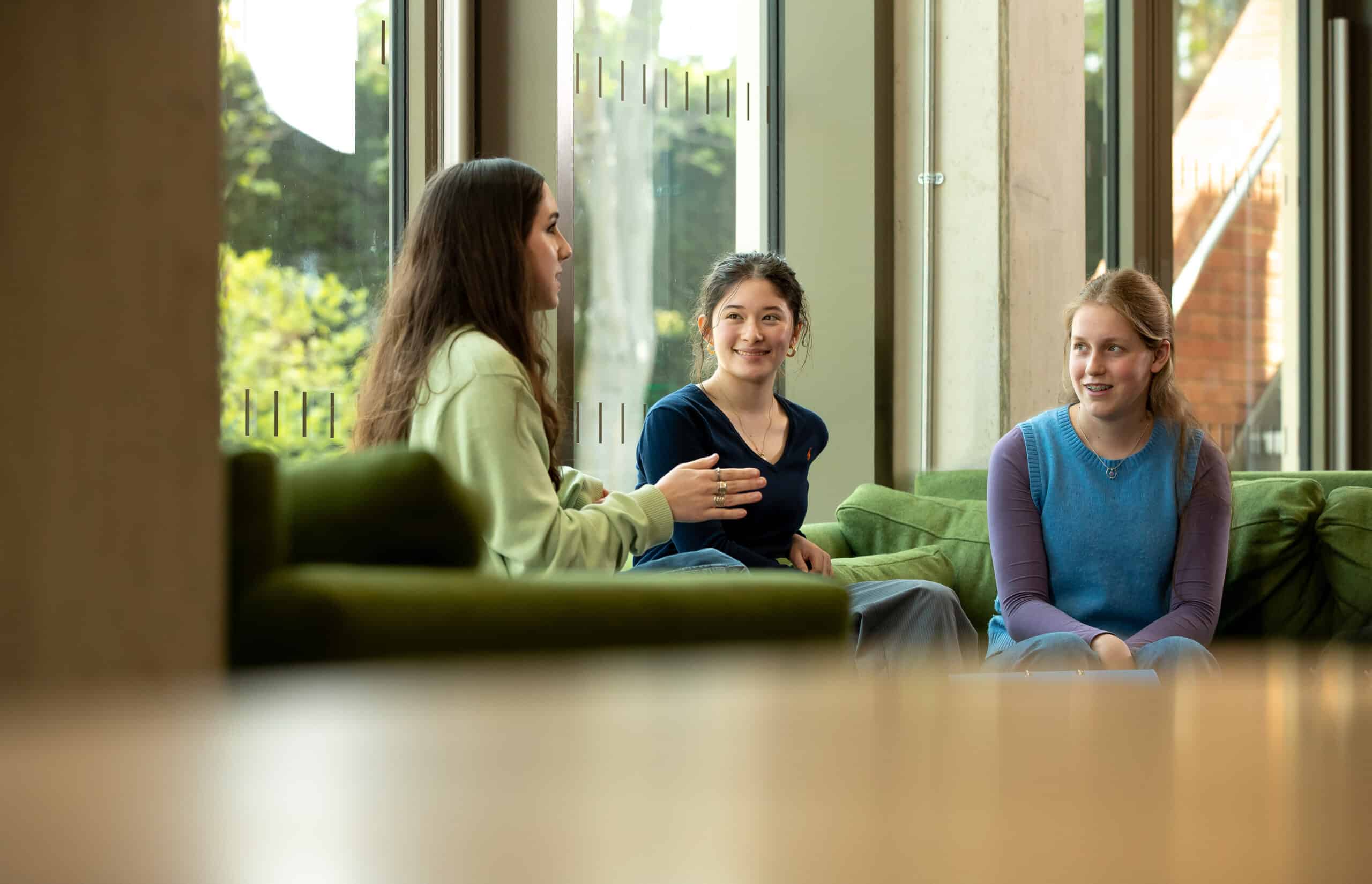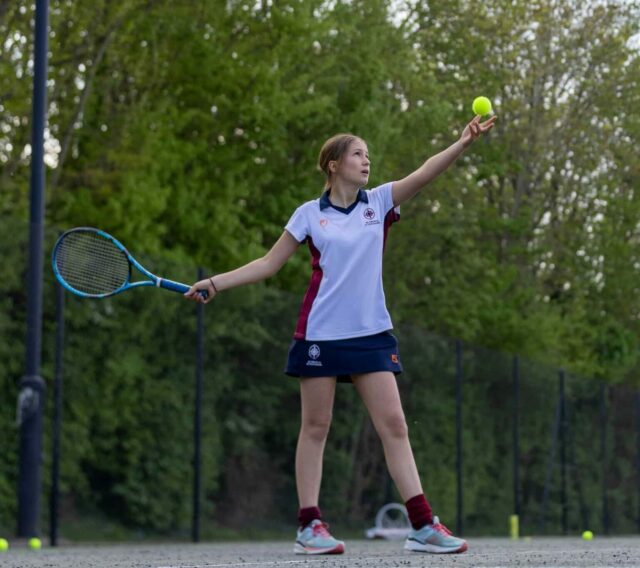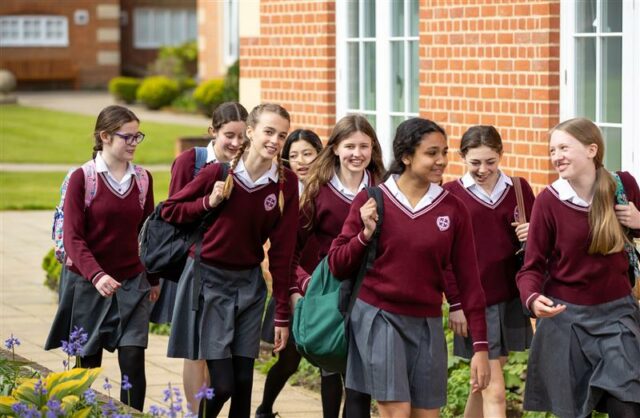In our latest SHSK Thinks article, Mrs Bedford discusses ‘mindfulness’ and the SHSK approach to nurturing minds.
This term I thought I’d focus on ‘mindfulness’. The media suggests that this topic is added to the long list of information that schools should ‘teach’ and my inbox gets peppered daily with providers keen to make money out of ‘delivering’ it to children. From my perspective this misses the point; it is much more than simply techniques to be practised, it is about providing a whole environment that creates such a diverse offer that everyone can find something that helps them to forget the planning ahead and be in the moment, with all of the potential benefits that can bring to mental well-being.
In the fast-paced world of academic study, it’s crucial for educational institutions to acknowledge the importance of mental well-being. At SHSK, we understand that mindfulness is not a one-size-fits-all concept; it’s a broader notion of encouraging students to find out what is for them, their chosen methods of mental relaxation. I’d also argue that it goes beyond mental relaxation and strays into areas such as gratitude and the ability to create islands of mental space in a busy day.
So yes, we do have lessons, assemblies, tutor times and individual support that focuses on developing techniques. An example of this would be our Mental Fitness booklet aimed at Middle School students. Presented in tutor time and Personal Development (PD) lessons, this resource introduces students to various techniques eg ‘square breathing’ as well as apps, such as Headspace, enabling them to explore what works best for them individually. However, we all know that a calming voice or technique will not work for every individual. Sometimes silence is needed to create space and that’s why we insist on it at the start of Chapel. Our assemblies this year have often involved listening to different genres of music offering students who find space in music a wider reference context to explore.
Our school spaces, both indoors and outdoors, are designed to accommodate those who need some visual comfort and quiet areas, offering benches and outdoor areas that allow students to connect with nature. Recognising the significance of nature in promoting mental well-being, we have implemented an Outdoor Learning strategy for junior students, including a variety of activities at our Church Farm like sitting around the fire or bird watching.
For some, they find mindfulness in physical movement and creativity. In Sixth Form, students enjoy yoga and can choose Craft it as a St Katharine’s Study option, or go to the weekly art and Well-being Club. Middle School students often ‘just dance’. The Junior Department spill out into the quad each afternoon break and dash about filling the air with shouts and squeals.
In addition to the above, we try to encourage students to pause and consider what they are grateful for, look into the moment rather than engage in the next ‘I want’. They send postcards to friends and teachers, we all thank each other for kindnesses such as opening doors and try to acknowledge when others have gone the extra mile. Yes, that’s simply manners but it also has benefits for a sense of well-being.
As parents, I know you try to encourage the same development of positive habits for mental health, be it a walk on a windy day, wrestling various electronic gizmos out of your daughter’s hand, cooking, or travelling many miles together in companiable silence or encouraging/sending them out into the garden for some daylight.
So, mindfulness as the current ‘trend’ may be here to stay or may go the way of other concepts that go in and out of fashion. For us, we will not be ‘teaching’ or ‘delivering’ it to/at your daughter and we make no apology for that. We will be looking to embed it in the fabric of her being so that as she heads out into a fast-paced world where she will no doubt work hard and achieve great things, she also knows how to create a moment of stillness where she can simply be.

